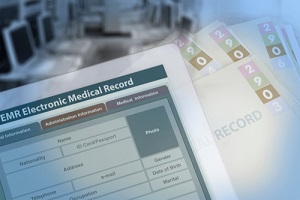Catch of the Week: NextGen Healthcare

This week’s Department of Justice (DOJ) Catch of the Week goes to electronic health record (EHR) technology vendor NextGen Healthcare Inc. Today, DOJ announced the company has agreed to pay $31 million to settle charges it violated the False Claims Act by misrepresenting to the government the capabilities of its EHR software and providing kickbacks to its users to induce them to recommend NextGen’s software. The government’s enforcement of both EHR fraud and healthcare kickbacks follows its perennial pattern of treating these two areas as enforcement priorities.
Under the American Recovery and Reinvestment Act (2009), Congress created the Medicare and Medicaid EHR Incentive Program to encourage health care providers to adopt EHR technology. The U.S. Department of Health and Human Services (HHS) provides incentive payments to eligible providers that adopt certified EHR technology and otherwise demonstrate it satisfies all applicable HHS-adopted certification criteria.
According to the government, NextGen falsely obtained certification for its EHR software, relying on an auxiliary product designed only to perform the certification test scripts and concealing NextGen’s EHR lacked critical functionality. NextGen’s EHR failures apparently included the inability to record vital sign data, to translate data into required medical vocabularies, and to create complete clinical summaries.
The government also claims NextGen violated the Anti-Kickback Statute by providing credits, often worth as much as $10,000, to customers who referred NextGen’s EHR software to new customers. The government has consistently applied a very broad sweep in what it considers to fall within the financial remuneration proscribed by the statute. It will consider pretty much anything of value in exchange for referrals to be covered by the kickback ban.
In announcing the settlement, the government stressed the “essential” role EHR plays in our health care system: “Every day, millions of patients and health care providers across the country rely on such records to accurately identify and transmit vital health information.” It further highlighted the importance of the EHR Incentive Program in providing “assurances to providers that their EHR can perform certain important functions . . . [and] correctly document and process important health data for continuity of patient care.”
The government’s action was originated by a lawsuit filed under the qui tam provisions of the False Claims Act by Toby Markowitz and Elizabeth Ringold, health care professionals at a facility that used NextGen’s software. These provisions allow private individuals to bring actions on behalf of the government against parties committing fraud against the government. They also provide these whistleblowers with up to 30 percent of the government’s recovery. The whistleblowers in this case will receive $5,580,000 from the government’s recovery.
If you would like more information on what it means to be a whistleblower or think you may have information relating to healthcare fraud or any other kind of fraud against the government, please feel free to contact us so we can connect you with a member of the Constantine Cannon whistleblower lawyer team.
Read More:
- Anti-Kickback Statute
- False Claims Act
- Fraud Related to Electronic Health Records
- Healthcare Fraud
- I Think I Have a Whistleblower Case
- Contact Us Confidentially
Tagged in: Anti-Kickback and Stark, Catch of the Week, Electronic Health Records, FCA Federal, Healthcare Fraud, Whistleblower Case,